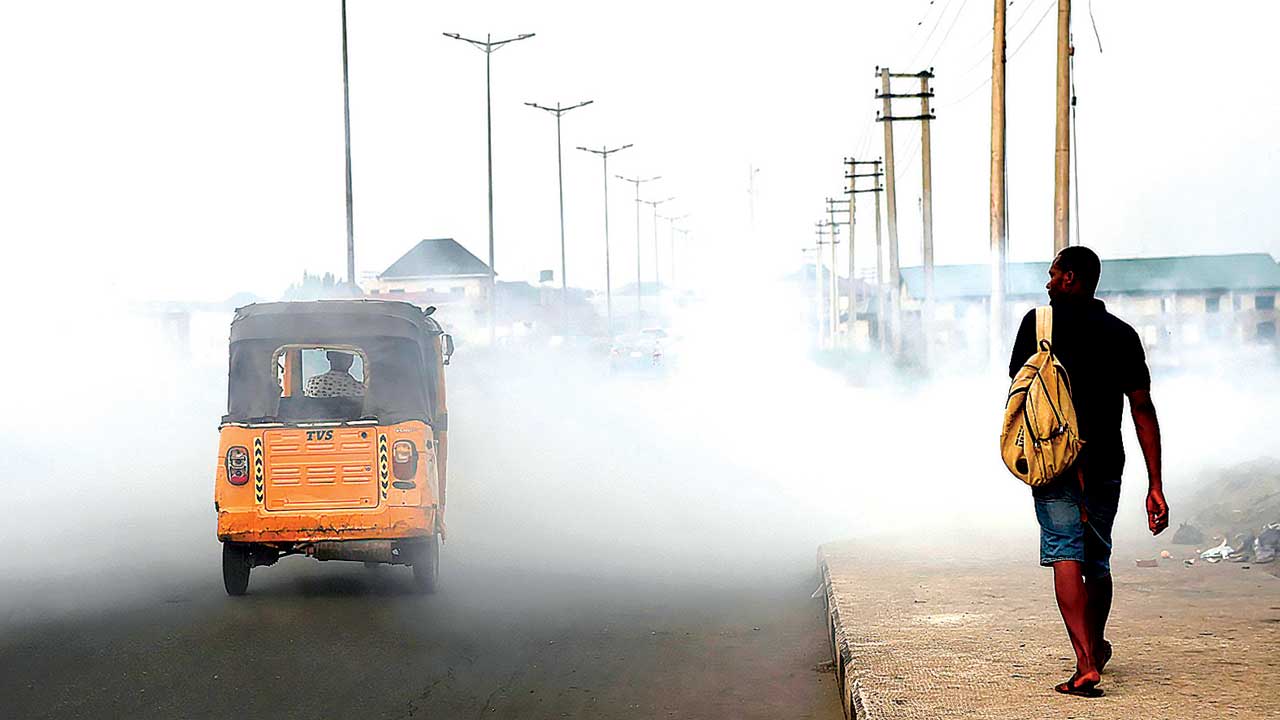
One-third of countries lack air quality standards, says report
A new report by the United Nations Environment Programme (UNEP) has revealed that one-third of countries have no legally mandated outdoor air quality standards.
It also noted that where such laws exist, standards vary widely and are often misaligned with World Health Organisation (WHO) guidelines; adding that at least 31 per cent of countries that do have the power to introduce such ambient air quality standards are yet to adopt them.
The report, which is the first-ever global assessment of air quality laws and regulations, was launched ahead of the International Day of Clean Air for blue skies. It examines national air quality legislation in 194 states and the European Union.
Exploring various dimensions of legal and institutional frameworks, the report assesses their effectiveness in ensuring the attainment of air quality standards and concludes with key elements for a robust model of air quality governance to be considered in national legislation and makes the case for considering a global treaty on ambient air quality standards.
Air pollution has been identified by WHO as the single largest environmental health risk with 92 per cent of the world’s population living in places where air pollution levels exceed, safe limit and disproportionately affecting women, children, and the elderly in low-income countries.
According to the UNEP’s study, in at least 34per cent of countries, ambient air quality is not yet legally protected. Even where legally adopted, it insisted that standards are difficult to compare as 49 per cent of the world’s countries define air pollution exclusively as an outdoor threat.
It further stated that institutional responsibility for attaining standards is weak globally with only 33per cent of countries imposing obligations to meet legally mandated standards. “Monitoring is critical to knowing if standards are being attained but are not legally required in at least 37 per cent of countries. Finally, although air pollution knows no borders, only 31 per cent of countries have legal mechanisms to address cross-border air pollution.
The Executive Director, UNEP, Inger Andersen said there will be no jab to prevent seven million premature deaths caused by air pollution each year, a number he said is poised to grow by more than 50 per cent by 2050.
The co-author of the report, Prof. Eloise Scotford explained that the study demonstrates that “even the most admirable national air quality objectives must be supported with strong institutional frameworks, implementation capacity and well-coordinated laws, if they are to be effective.”
The report also charged more countries to adopt robust air quality laws, which includes setting ambitious standards in law for both indoor and ambient air pollution, improving legal mechanisms for monitoring air quality.
SOURCE: Guardian.ng
Similar Topics
The Lagos State Government has commenced the demolition of illegal structures within the Lekki Free...
a month ago Read MoreNigeria’s recently enacted Tax Act of 2025 (NTA 2025), which becomes effective on January 1,...
a month ago Read MoreMember States of the United Nations Human Settlements Programme (UN-Habitat) have endorsed a new...
2 months ago Read MoreNigeria Enters a New Tax Era Come January 2026, Nigeria’s property market will experience a...
2 months ago Read MoreImproved Security and Diaspora Capital Drive Rebound The housing sector in Nigeria’s...
2 months ago Read MoreThe Lagos State Government has announced that night-time repair works will take place on Ozumba...
4 months ago Read MoreThe Federal Government has suspended all previously approved, pending, and prospective applications...
5 months ago Read MoreThe Federal Government has successfully mobilised more than N70 billion in private capital...
5 months ago Read MoreThe Lagos State Government, through the Lagos State Physical Planning Permit Authority (LASPPPA),...
7 months ago Read MoreThe Federal Government has expanded the Abuja-Kaduna-Kano Road project to incorporate a direct...
7 months ago Read MoreThe Federal Capital Territory Administration (FCTA) has taken possession of Wadata Plaza, the...
8 months ago Read MoreDefaulters on FCT ground rent now have 14 days grace to pay up what they owe the FCT Administration...
8 months ago Read MoreUnprofessional practices by estate agents in major cities are significantly influencing the spike...
8 months ago Read MoreA Real estate development firm, Lifecard International Investment Company, has revealed that many...
8 months ago Read MoreDespite a fall in investment volumes from the 2021 peak, there is an ongoing desire for property...
8 months ago Read MoreThe Lagos State government has advised the leadership of the Nigerian Institution of Estate...
8 months ago Read MoreReal estate market dynamics such as construction cost, land, finance, government policies and taxes...
8 months ago Read MoreEvent Set to Celebrate Managers Who Shape Careers and Drive Organizational Growth Business...
10 months ago Read MoreGlobal Leaders to Converge in Lagos for Landmark Event Driving Urban Innovation and...
10 months ago Read MoreIn a bold move to redefine affordable luxury housing, Nigerian real estate giant Gtext Holdings has...
10 months ago Read More
















